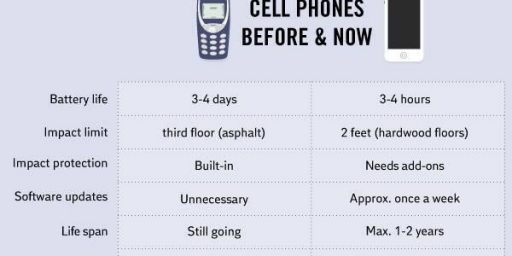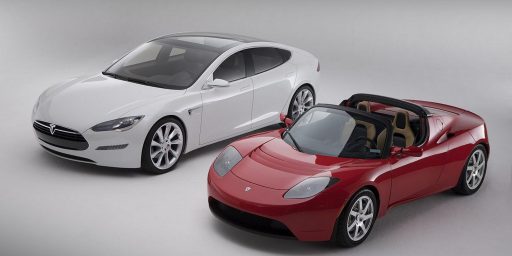NEW SOURCE OF POWER?
Via e-mail: Institute of Physics
A new way of generating electricity from flowing water could mean that in the future you will never have to charge up your mobile phone again. Instead of a normal battery, mobile phones could be fitted with a battery that uses water – you just need to pressurise it regularly.
Research published today by the Institute of Physics journal, Journal of Micromechanics and Microengineering reveals a new method of generating electric power by harnessing the natural electrokinetic properties of a liquid such as ordinary tap water when it is pumped through tiny microchannels. The research team from the University of Alberta, Edmonton, Canada, have created a new source of clean non-polluting electric power with a variety of possible uses, ranging from powering small electronic devices to contributing to a national power grid.
The research was led by Professor Daniel Kwok and Professor Larry Kostiuk from the University of Alberta. Professor Kostiuk said: “This discovery has a huge number of possible applications. It’s possible that it could be a new alternative energy source to rival wind and solar power, but this would need huge bodies of water to work on a commercial scale. Hydrocarbon fuels are still the best source of energy but they’re fast running out and so new options like this one could be vital in the future”.
Interesting. But can it replace Middle Eastern oil?






no- All they did is make hydroelectric power smaller. The energy used to pressurized your cellphone would be far greater than the energy stored.
I’m not sure why an institute of Physics published this… Changing the form of energy does not create more- in fact there is always an energy loss. On the phone example, you would need a compressor which you would obviously plug into the wall. It would generate heat which is a net loss.
I guess there is an application somewhere for this- but I don’t get it form this article.
Think movement of water, and then think the coast. A very efficient way to convert wave and tidal power directly into electricity would have an astounding effect on power generation, no?
Sure- But this can’t do that.
The water must flow thru “micro channels.”
Ya know what a “micro channel” is to algae? HOME.
If you put something like this out to get in the way of a tide it will gunk up in an hour with all sorts of trash, silt and detritus.
(wearing my engineer hat for a moment)
When it comes to energy, the two things we try to conquer are generation and portability. If you think about how easy it is to carry a cup of gas and what happens when it encounters a match, you know why we use it.
I thought about this for about an hour last night and I see no way this aids generation. Anytime you have massive amounts of water as the guys say, you will plug the micro channels.
The thought of hooking your cell phone to an air compressor (I guess) means you could charge it in seconds. That aids portability but I’m not sure it will ever beat other technologies that are way ahead of it. (and it cost a whole bunch of energy to compress air.)
To me, the idea it might power a whole power grid seems implausible to say the least.
I dunno, maybe I am missing something that is not in this press release but to me, this seems like it is great grant fodder but that is all.
Couple of things. First, the current system’s efficiency is pretty pathetic, so there’s nothing going to happen with the current vision. Next, if they do improve this, then as to your first comment, the efficiency overall is what’s important. If the combined efficiency of the system which pressurizes the water and then extracts the power is higher than the equivalent system with – say – batteries being charged and discharged, then this would be great. Kind of like an air engine being used instead of a gas engine. Finally, I don’t see any reason this can’t be scaled.
But it’s all speculation at this point.
(My own engineer hat now off)
Hmmm- I read the article and I see no where that it says the “current system’s efficiency is pretty pathetic.” In fact due to the nature of the process it would lend itself to be easy to make efficient already.
As to your other points, No, making something that is the same efficiency as our current technology would not be “great.” Our current battery technology sucks. Many other technologies that are out there (fuel cells) hold far more promise.
If you can not see how this can not be easily be scaled then I guess I can’t help you.
And finally, I apologize for actually discussing this with you. You keep changing your name when you troll me and I did not realize it was you, I thought it was someone with a brain.
If you had any idea what you were talking about it might be different but instead you take the usual tact of not reading the thing, not understanding what you do read and saying whacky shit that has no basis in reality simply to be a troll.
And unlike you, my engineer’s cap was on my head as I crossed the stage to get that expensive piece of paper bound in dead cow. Simply put “I are one.”
Anyone with even a rudimentary understanding of energy would not make the foolish points you have. Please quit being a troll.
Wow Paul. I said the “current system” as referring to the current water to electricity system. Not the current, normal mechanisms. Geesh. Why don’t you read instead of react? Oh wait, I know the answer to that question.
BTW Paul, here’s the quote
Maybe you should read a bit more than one single source.
I was referring to the piece linked…. you are still an idiot.
Thanks Paul.
—